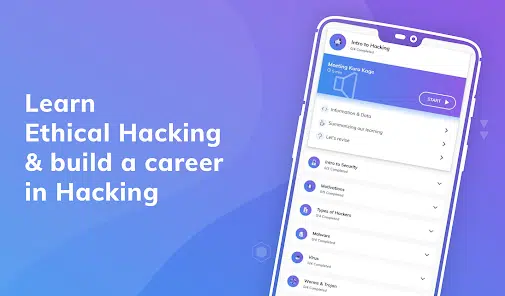The Essence of Hacking
Hacking, in its truest sense, involves the intricate manipulation of computer networks and systems to achieve unauthorized entry or execute other actions, often with malign intent. Yet, it is vital to recognize that hacking need not always harbor malicious motives. Ethical hacking serves as a critical avenue for pinpointing security vulnerabilities and fortifying digital defenses.
The Significance of Comprehending Hacking
In a world increasingly tethered to the digital sphere, where cyber adversaries lurk in shadows, acquainting oneself with the principles of hacking has become indispensable for individuals and organizations alike. By delving into this domain, one equips themselves with the tools to safeguard digital resources, foresee potential breaches, and contribute to the ever-evolving realm of cybersecurity.
Foundations of Hacking
Diverse Archetypes of Hackers
Hackers are commonly classified based on their ethical compass and intentions. White hat hackers, also known as ethical hackers, utilize their skills for constructive purposes. Conversely, black hat hackers engage in nefarious activities, while gray hat hackers tread the ambiguous terrain between morality and malevolence.
Pervasive Hacking Tactics
The arsenal of a hacker is diverse, encompassing schemes such as phishing, malware dissemination, SQL injection, and the artful manipulation of social engineering. A comprehensive understanding of these stratagems is paramount for unraveling the modus operandi of hackers and crafting robust countermeasures.
Avenues for Mastery
Online Learning Platforms
The digital realm offers an abundance of learning opportunities through platforms like Coursera, Udemy, and Cybrary, which present meticulously designed courses by cybersecurity connoisseurs. These programs cater to novices and veterans alike, covering a spectrum of complexity.
Literary Compendiums
Books stand as timeless reservoirs of knowledge. Works like The Hacker Playbook by Peter Kim and Hacking: The Art of Exploitation by Jon Erickson provide profound insights into the methodologies and philosophies underlying hacking practices.
Interactive Communities
Engaging with forums and collectives such as r/hacking on Reddit or Hack Forums fosters an environment for collaboration, idea exchange, and hands-on learning.
Crafting a Risk-Free Laboratory
Utilizing Virtual Machines
Virtual machines (VMs) facilitate a safeguarded ecosystem for experimenting with hacking techniques. Tools like VirtualBox and VMware empower users to simulate diverse operating systems within a single device, ensuring a shielded practice environment.
Ethical Hacking Simulations
Platforms like Hack The Box and TryHackMe present immersive scenarios that emulate real-world challenges, enabling aspiring ethical hackers to refine their expertise without contravening laws.
Skillsets for Proficiency
Programming Aptitude
A solid grasp of programming languages is a cornerstone of hacking. Languages like Python, JavaScript, and C prove indispensable for automating tasks, exploiting web vulnerabilities, and unraveling reverse engineering puzzles.
Networking Acumen
Understanding the intricacies of networking—such as TCP/IP protocols, DNS mechanics, and firewall intricacies—is vital, as cyber assaults predominantly traverse networked ecosystems.
Mastery of Operating Systems
Familiarity with Windows, Linux, and macOS unlocks a deeper comprehension of their architectures and potential weaknesses, enabling tailored approaches to penetration and defense.
Experiential Learning
Capture the Flag Events
CTF competitions challenge participants to apply theoretical knowledge in dynamic, problem-solving scenarios. These events sharpen analytical thinking while cultivating practical skills in areas such as cryptography and digital forensics.
Bug Bounty Ventures
Bug bounty initiatives allow ethical hackers to uncover vulnerabilities for rewards, aligning financial incentives with cybersecurity improvements. Platforms like HackerOne and Bugcrowd connect talent with companies eager to bolster their defenses.
Independent Initiatives
Pioneering personal projects, such as developing bespoke hacking utilities or auditing website security, enhances one’s technical prowess while showcasing abilities to prospective employers.
Upholding Ethical Integrity
The Imperative of Ethics
Ethical hacking channels technical acumen toward positive outcomes, safeguarding systems and uncovering vulnerabilities before malicious actors can exploit them. Maintaining ethical standards ensures that endeavors remain lawful and beneficial.
Navigating Legal Boundaries
A thorough understanding of cybersecurity laws and regulations is crucial to avoid transgressions that could lead to severe repercussions, including legal action and incarceration.
Summation
Embarking on the journey to understand hacking unveils a captivating landscape within the cybersecurity domain. By mastering its tenets, leveraging diverse resources, and engaging in practical experiences, one can cultivate the skills necessary to thwart cyber threats effectively. Above all, always adhere to ethical principles, contributing positively to a safer digital future.



